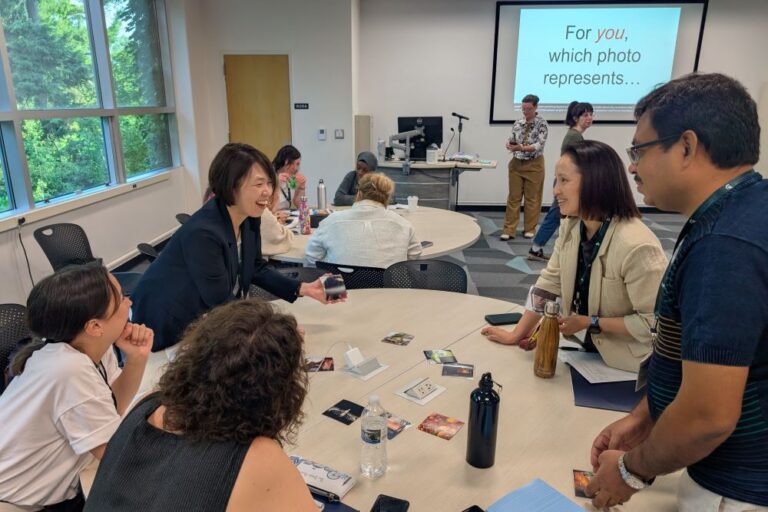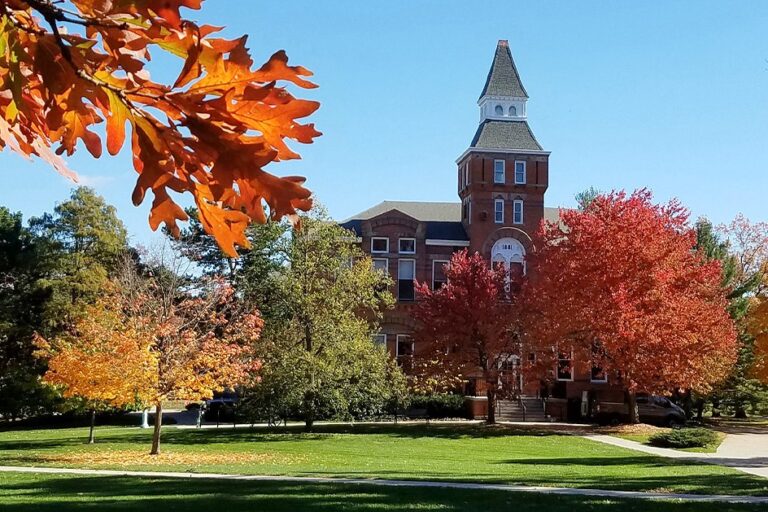
The College of Arts & Letters wishes to recognize our long-serving faculty members who have retired this year and offer our thanks and appreciation for their many years of service. Those faculty members include Susan Gass, Mutsuko Endo Hudson, William Penn, John R. Rauk, and Edward Watts. Together they have served the College and University a combined total of more than 155 years. We wish them the very best in their retirement.
Susan Gass

Susan Gass, a University Distinguished Professor in the Department of Linguistics and Germanic, Slavic, Asian, and African Languages and the Second Language Studies (SLS) Program, retired August 16, 2020, after having worked at Michigan State University for 33 years. She served as Director of the English Language Center (ELC) for 28 of those years, overseeing the ELC as it became a worldwide renown center. She was the founding Director (2005) of the SLS Ph.D. program, now one of the top programs of its kind in the United States and abroad. Gass is a leader in the field of Second Language Acquisition and has written, edited, or co-authored nearly 50 books and wrote or co-authored more than 150 articles. She also has received several grants to support her research including a $1.4 million grant-supported project that studied language proficiency development in higher education. Throughout her career, Gass has earned numerous honors for her work, including TESOL 50 at 50 Awardee, Kenneth W. Mildenberger Award, American Association for Applied Linguistics Distinguished Scholarship Service Award, Michigan Association of Governing Boards Award, Ralph Smuckler Award for advancing international studies and programs, and Paul Pimsleur Award for Research in Foreign Language Education (2012) and Outstanding Research (1996) from the American Council for the Teaching of Foreign Languages. During her retirement, Gass continues to stay busy as a researcher and editor.
Mutsuko Endo Hudson

Mutsuko Endo Hudson, Professor of Japanese and Linguistics, retired from the Department of Linguistics and Germanic, Slavic, Asian and African Languages on December 31, 2019, after 30 years of service and having served as Director of the Japanese Program. Her areas of research are Linguistics (pragmatics, discourse and functional grammar) and Language Pedagogy. Her recent publications include Pragmatics of Japanese: Perspectives on Grammar, Interaction and Culture (2018); Modern Japanese Grammar: A Practical Guide (2013); Modern Japanese Grammar: Workbook (2014); and Current Issues in Japanese Language Education, Acquisition, and Linguistics (2012; guest editor for Japanese Language and Literature 46-1). For her work, she received the 2004 Japanese Foreign Minister’s Certificate of Commendation, 1993-94 MSU Teacher-Scholar Award, 1992-93 Lilly Endowment Teaching Fellowship, as well as several grants from the Japan foundation, the Association for Asian Studies, the National Foreign Language Resource Center, among others. She was a frequent presenter at international and national conferences, colloquia, and workshops. She worked closely with secondary school Japanese teachers in Michigan throughout her tenure. She continues to serve as Adjunct Professor for the master’s program in Japanese Pedagogy at Columbia University.
William Penn

William Penn, MSU Professor of Creative Writing, retired May 16, 2020 after having worked at MSU for nearly 33 years. Penn taught courses such as Special Topics in English, Introduction to Fiction Writing, Advanced Fiction Writing, and more. He is one of the founding members of the Native American Writer’s Circle and worked as a contributor for the Houghton Mifflin Anthology of Literature. He served as an advisor for the Native American Writer’s Circle and the MSU American Indian Studies Program. He has written seven books: The Absence of Angels (1994), All my Sins are Relatives (1995), The Telling of the World (1996), Killing Time with Strangers (2000), This is the World (2000), Feathering Custer (2001), and Storytelling in the Digital Age (2013). He was awarded the Stephen Crane Prize for Fiction twice, the American Book Award for Fiction, North American Indian Prose Award, and a Distinguished Faculty Award at MSU.
John N. Rauk

John N. Rauk retired on May 16 after working at MSU for 33 years. He was an Associate Professor in the Department on Romance and Classical Studies. He received his M.A. in Classical Studies and English from the University of North Carolina in 1982 and his Ph.D. in Classics at the University of Michigan in 1987. That same year, he joined MSU’s Department of Romance and Classical Studies. He served as department chairperson from 2002-2007 and was the convener of the Classics section until 2019. Rauk’s research focused on the Horatian satires and the works of Catullus. While at MSU, he proved to be a dedicated instructor and mentor in both the department and in the general education curriculum. He taught courses on J.R.R. Tolkien and mythology, the ancient Greek and Roman world in film, Classical Greek, and Latin. Rauk was instrumental in developing the interdisciplinary Classical and Ancient Mediterranean minor housed in the department. In retirement, he looks forward to spending time with his family.
Edward Watts

Edward Watts retired on May 15, 2020, after working at MSU for 27 years. From 1993-2004, he taught in the Department of American Thought and Language, which is now the Department of Writing, Rhetoric, and American Cultures (WRAC). He moved to the Department of English in 2004, focusing on entry-level and service courses. During his time at MSU, he chaired the College Advisory Council (CAC) twice and the Reappointment, Promotion, and Tenure (RPT) four times. He also served four years on the College Curriculum Committee (CCC) and for two years chaired the Review Panel for the Special Programs Grant Committee for the College of Arts & Letters, College of Communication Arts and Sciences, Residential College in the Arts and Humanities, College of Law, College of Music, and College of Social Sciences. From 2012-2014, Watts was the Planner and Convener of Community Conversations, which were College of Arts & Letters-funded off-campus events with Michigan authors. He also published several books, including one published this year, Colonizing the Past: Myth-Making and Pre-Columbian Whites in Nineteenth-Century American Writing. Even retired, Watts is keeping active as a scholar and has edited a book that is coming out early next year.


